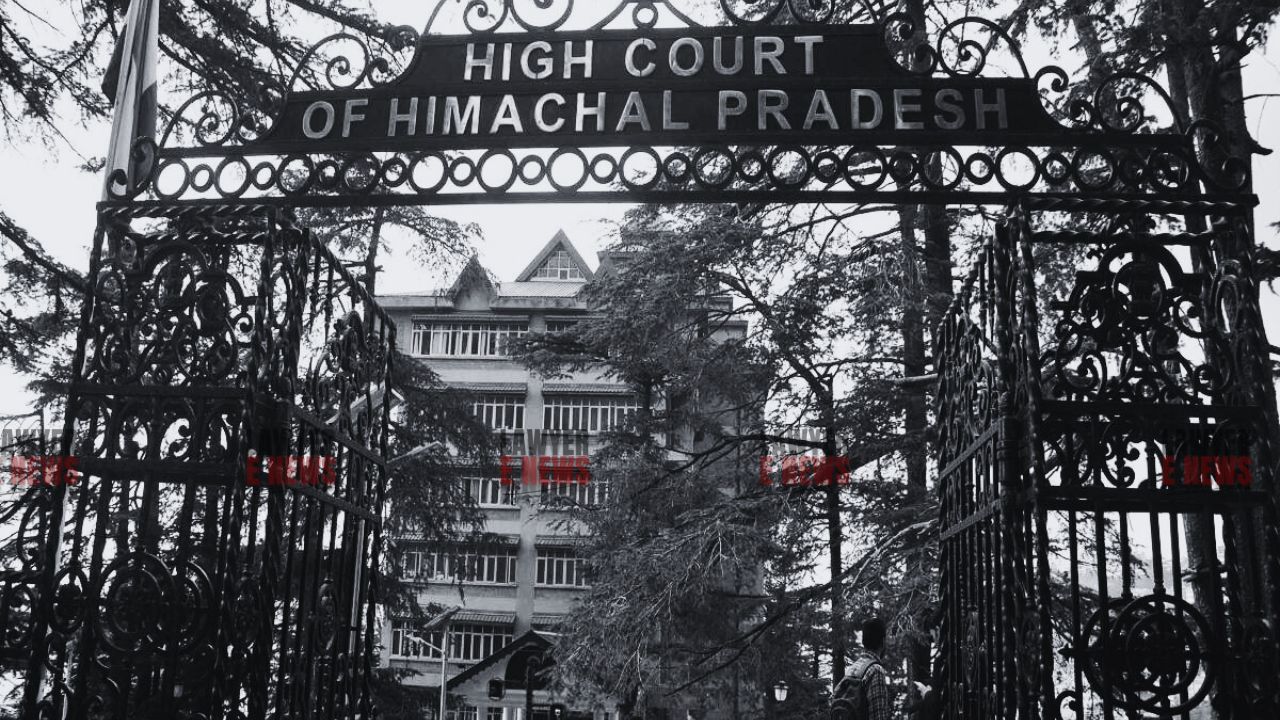-
by Admin
15 February 2026 5:35 AM



Petitions under Section 482 Cr.P.C. and revision maintainable against summoning order in defamation case, court rules. The Himachal Pradesh High Court, in a significant judgment, quashed a defamation complaint and the summoning order issued by the Judicial Magistrate First Class-III, Mandi, H.P. The court held that the news publication in question was based on a true reproduction of a resolution and therefore did not constitute defamation. Justice Rakesh Kainthla emphasized the importance of examining the material on record before issuing summons in defamation cases.
The case arose from a complaint filed by Karmu Ram, who alleged that defamatory articles were published about him in the newspapers ‘Amar Ujala’ and ‘Divya Himachal.’ The complainant, a respected figure and the State President of H.P. Vishwakarma Vikas Sabha, claimed that the articles, stating “Karmu Ram suspended from Vishwakarma Sabha,” were published with the intention to malign his reputation. The accused, N.R. Pathak and another, contended that the publication was based on a resolution passed by the Central Governing Body of the Sabha, expelling Karmu Ram for alleged anti-Sabha activities.
Justice Kainthla observed that the issuance of summons is not an interlocutory order and can be challenged under Section 482 Cr.P.C. or through a revision. The court emphasized that an order affecting the rights of parties adversely, such as the issuance of summons, is amenable to the revisional jurisdiction.
The court noted that the trial court issued summons without properly considering the documents and evidence presented. The resolution expelling the complainant was brought on record by the complainant himself, and the publication of this resolution in the newspapers did not constitute defamation. Justice Kainthla remarked, “The news item was based upon the resolution passed in the Sabha. There was nothing false in it and the publication of the true news does not constitute defamation.”
The court extensively discussed the principles for exercising jurisdiction under Section 482 Cr.P.C. and quashing complaints. The judgment cited several precedents, including A.M. Mohan v. State, and Indian Oil Corporation v. NEPC India Limited, to elucidate that the power to quash should be used to prevent abuse of the legal process and ensure justice.
Citing Jawaharlal Darda v. Manoharrao Ganpatrao Kapsikar, the court reiterated that fair and true reporting of proceedings does not amount to defamation. The court emphasized that a complaint warranting dismissal at the issuance stage requires a higher degree of satisfaction, where the absence of sufficient grounds for proceeding must be apparent.
Justice Kainthla stated, “The resolution brought on record by the petitioner shows that no defamation was committed. The learned Trial Court erred in directing the issuance of the summons. The complaint does not disclose the commission of a cognizable offence and it will be an abuse of the process of the Court to continue with the same.”
The High Court’s decision to quash the complaint underscores the judiciary’s commitment to preventing misuse of defamation laws and ensuring that true and fair reporting is protected. This judgment sets a precedent for the careful scrutiny of evidence before issuing summons in defamation cases, reinforcing the legal framework for freedom of expression and fair reporting.
Date of Decision: July 5, 2024
